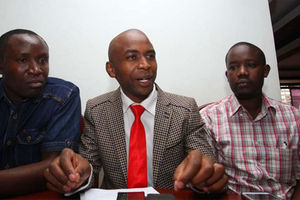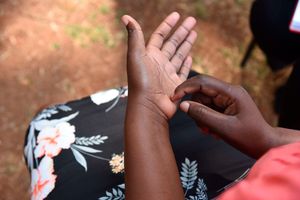Why Kenya should rethink the role of clinical officers in surgery

The Kenya Medical Association and the Kenya Obstetrical and Gynaecological Society have called for stricter limits on the procedures clinical officers can perform.
What you need to know:
- In surgical training, we have a mantra: “never perform a surgery if you cannot handle its intraoperative complications.”
- I challenge any clinical officer advocating for surgical autonomy to honestly assess their ability to manage potential complications.
As a medical doctor with more than 14 years of experience, half of which I have spent as a surgeon, I feel compelled to weigh in on the heated debate surrounding the scope of surgical care that should be entrusted to clinical officers.
This issue has sparked intense discussions, with the Kenya Medical Association and the Kenya Obstetrical and Gynaecological Society calling for stricter limits on the procedures clinical officers can perform. On the other side, the clinical officers’ union has pushed back, turning what should be a professional dialogue into an ugly exchange.
I must confess that I stand with the specialists on this matter. However, let me be clear: these are my personal views and they do not represent the Surgical Society of Kenya, where I serve as secretary-general, or PCEA Kikuyu Hospital, where I am the chief medical officer.
The crux of the issue lies in a simple but profound question posed in a WhatsApp group chat among my colleagues: “Why do people want to perform caesarean sections, yet they can’t handle a hysterectomy? Who will take over when complications arise? Who will bear the medical and legal responsibility?”
This question cuts to the heart of the matter. Medical officers and specialists are regulated by the Medical Practitioners and Dentists Council, while clinical officers fall under a different regulatory body. If the most senior care providers—specialists—are raising concerns, who will safeguard our mothers and their new-borns when things go wrong?
Let’s address this issue objectively, setting aside past practices. Here are six questions we must ask ourselves to put the issue to objective perspective:
1. The doctor of choice: Who would a clinical officer choose to perform a caesarean section on their own spouse - another clinical officer or a gynaecologist?
2. Experience of dual-trained practitioners: What do medical officers who initially trained as clinical officers before pursuing medicine have to say about this? No one has listened to their side of the story, based on lived experience.
3. Global comparisons: Countries where clinical officers perform caesarean section have often been cited as examples. But what are their maternal and neonatal mortality rates?
4. Global standards: Why does the World Health Organization and the World Bank measure healthcare staffing in terms of physicians and nurses, yet Kenya seems to be creating a different yardstick?
5. Global demand: If clinical officers are globally recognised, why aren’t there international recruitment agencies clamouring to hire Kenyan clinical officers for positions in the European Union, the United States or Australia, like we have for nurses and doctors?
6. The Cuban model: Cuba, a country that Kenya has previously looked up to for inspiration in universal healthcare, relies on postgraduate-trained family physicians at the primary care level. Why aren’t we emulating this through and through?
I won’t attempt to answer these questions here. Instead, I encourage everyone to research and draw their own conclusions.
The solution, in my view, is to step back and look at the issue dispassionately. No one is suggesting that current clinical officers should lose their jobs. They should continue to work within a clearly defined scope that doesn’t compromise patient safety, and under adequate supervision. However, authorities must take charge of policy formulation to ensure quality care. If we agree that having more medical doctors and specialists is beneficial for Kenya, then the logical step is to phase out the training of new clinical officers. We have enough medical schools to train the doctors we need. This approach wouldn’t affect current clinical officers, who would continue working until retirement, but it would ensure a more sustainable and globally competitive healthcare system.
One common argument is that doctors are often absent from their posts, especially in remote areas. While this is a valid concern, it should not be used to justify expanding the scope of clinical officers. Instead, facility managers must be held accountable for ensuring that doctors are present and available as per their rosters. The government must also address the unrealistic expectations placed on specialists such as being the sole provider for an entire county and working 24/7 without respite due to a shortage of specialists.
In surgical training, we have a mantra: “never perform a surgery if you cannot handle its intraoperative complications.” I challenge any clinical officer advocating for surgical autonomy to honestly assess their ability to manage potential complications.
This debate is not about doctors protecting their turf or undermining the contributions of clinical officers. It’s about ensuring that every Kenyan has access to safe, high-quality surgical care. Let’s prioritise patient safety and long-term planning over short-term fixes.
Dr Aruyaru is a consultant general surgeon, secretary-general of the Surgical Society of Kenya and the chief medical officer at PCEA Kikuyu Hospital.

